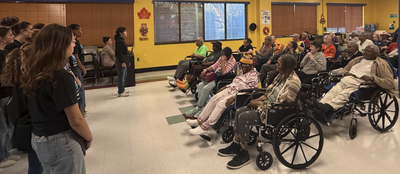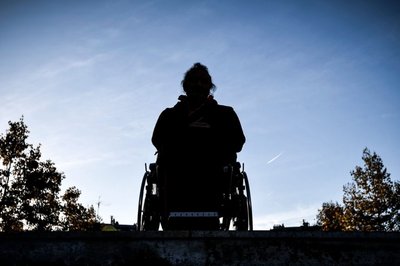by Rohan Satija, Texas high school student
As I ran to the library, I suddenly felt as if I couldn’t breathe. I picked up a book and hid my face behind it, attempting to appear normal, when in reality, I was sobbing and hyperventilating. Although I didn’t know what was going on at the time, I later discovered that I had been experiencing a panic attack.
Before the panic attack began, I remember being bullied by a group of boys. I felt so humiliated and scared when they made fun of my accent and demeanor, but I tried to hide the tears streaming down my face. Eventually, I ran to the library to hide my panic attack from anyone who could see it.
Related: Discuss why school districts are banning books about the Holocaust and racism
Let me take you back to the beginning. It was fifth grade, and I was the new kid in school, having recently moved from New Zealand to Austin, Texas. I was given the opportunity to join my school's broadcast channel, and I was eventually accepted as an anchor, which meant that I would be speaking to the whole school weekly. Since I was being broadcasted to the whole school, my accent made me feel vulnerable and exposed. When the laughter and taunts followed, it shattered me.
Related: Librarians push back against book bans
Amidst this chaos, I found solace in reading. I spent almost every free moment I had with my face buried in a book, especially ones that had representations of characters that looked like me and felt like me. One book in particular — "Aru Shah and the End of Time," by Roshani Chokshi — helped comfort me. When I saw the characters in my books win, I felt like I could win too.
Books helped me boost my self-esteem and improve my mental health, having a large impact on how I viewed myself and others. Eventually, I even connected with my peers over our shared love for reading!

Image courtesy of the author
The following year, I founded my nonprofit, the Let’s Learn Foundation, which aims to empower through education. We donate reading books and school supplies to underprivileged students and have helped over 11,000 kids in the past six years. Our “Donate Diverse” program, which donates books containing representations of diverse characters, has donated over 5,000 books.
This program resonates with my own experiences, a testament to how viewing these diverse representations helped me with my own mental health.
However, it is alarming that book bans are on the rise across the country. According to PEN America, between June 2022 and July 2023, there were nearly 3,400 instances of book bans, impacting over 1,500 titles. Furthermore, my home state of Texas made the most attempts to ban or restrict books in 2022, according to a report from the American Library Association.
Dr. Allison Bashe, a psychologist, highlights how banning books deprives youth of vital representation. Many of the books at the center of the book ban controversy are focused on marginalized groups, those already at risk for negative mental health consequences due to their experiences with discrimination. Thus, when these books get banned, she says it further marginalizes these groups even though the books could have the potential to help young readers better understand their lives.
Related: PEN America report on book bans
These book bans can further affect their mental health and well-being. The situation in Texas is alarming. House Bill 900, a new law, restricts access to books deemed "sexually explicit," infringing upon students' intellectual freedom. Local bans, such as in Katy and Beaumont, reflect a broader pattern of censorship. For example, a school district near Beaumont made headlines in September 2023 after removing a substitute middle school teacher who had read students portions of an illustrated adaptation of Anne Frank’s diary, which detailed her hiding from the Nazis and was published after her death in the Holocaust. In Friendswood, LGBTQ+ themes are deemed unsuitable, stifling discourse and diversity.
So — what can young people do regarding book bans? One of the best things to do is to attend your local Library And School Board Meetings, which is where most book ban battles are fought. By attending these meetings, you can get a better understanding of how book bans occur, and can even leave public comments. Additionally, the organization “Unite Against Book Bans” contains an incredible Action Toolkit for those interested in fighting against book bans.
Representation in literature can help shape who we are, who we aspire to be, and how we view the world around us. So when this representation is removed, it can have negative mental health consequences for youth. Book bans are not just about restricting access—they're about silencing voices, erasing identities, and perpetuating inequality. As we confront these challenges, let's remember the transformative power of literature. Let's champion diversity, empathy and inclusivity, ensuring that every youth sees themselves reflected in the pages they read.

Rohan Satija is a high schooler from Texas and a passionate advocate for childhood literacy and mental health. At 11 years old, he co-founded Let’s Learn Foundation, an organization that aims to “Empower through Education,” by donating books and school supplies to underprivileged students. His work has been recognized by Forbes Magazine, Lady Gaga's Born This Way Foundation, and more. In his free time, he loves to read, perform in plays, and explore local coffee shops.




